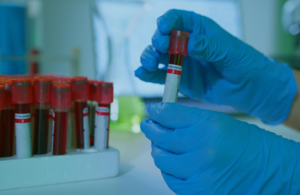Government to align with European specifications on high risk in vitro diagnostic devices to reduce regulatory burden
The specifications will establish standards for high-risk diagnostic tests while creating consistency with European regulations

The Government has announced its intention to amend the Medical Devices Regulations 2002 for Great Britain to incorporate EU Common Specifications for high-risk in vitro diagnostic (IVD) devices and to repeal regulations on Coronavirus Test Device Approvals (CTDA).
Respondents overwhelmingly supported a proposal to repeal the current CTDA process for COVID-19 devices and to replace current requirements with Common Specifications. In the interim, an accelerated CTDA process will be introduced for COVID-19 devices that have CE marking under the European IVD regulations (EU IVDR) and meet Common Specification requirements.
The Common Specifications will also enhance performance standards for IVD devices related to infectious diseases including Hepatitis B, C and D, HIV and Syphilis, as well as devices for blood grouping and tissue typing. These diagnostic tools are critical for effective patient care and public health management.
The move aims to ensure these vital IVD devices, which test samples from the human body to monitor health or manage disease, meet high standards of performance backed by robust clinical evidence.
Rob Reid, Deputy Director of Innovative Devices at the MHRA, said:
By aligning with standards already in place across Europe, we’re not only enhancing patient safety but also making it easier for manufacturers to navigate regulatory requirements across different markets.”
These new specifications will be introduced in regulations expected to be published later this year as part of the Government’s broader programme of medical devices regulatory reform, which supports the NHS transformation.
The changes reinforce the Government’s commitment to reduce regulatory burden and balance robust patient safety measures with support for innovation in the medical technology sector.
ENDS
Notes to editors
-
Common Specifications refers to a set of standardised technical and performance requirements developed at the European level for certain high-risk in vitro diagnostic (IVD) medical devices.
-
In vitro diagnostic (IVD) devices are medical tests used to examine samples like blood, urine, or tissue taken from the human body to help detect, diagnose, or monitor diseases and health conditions.
-
The Medicines and Healthcare products Regulatory Agency (MHRA) is responsible for regulating all medicines and medical devices in the UK by ensuring they work and are acceptably safe. All our work is underpinned by robust and fact-based judgements to ensure that the benefits justify any risks.
-
The MHRA is an executive agency of the Department of Health and Social Care.
-
For media enquiries, please contact the newscentre@mhra.gov.uk, or call on 020 3080 7651.